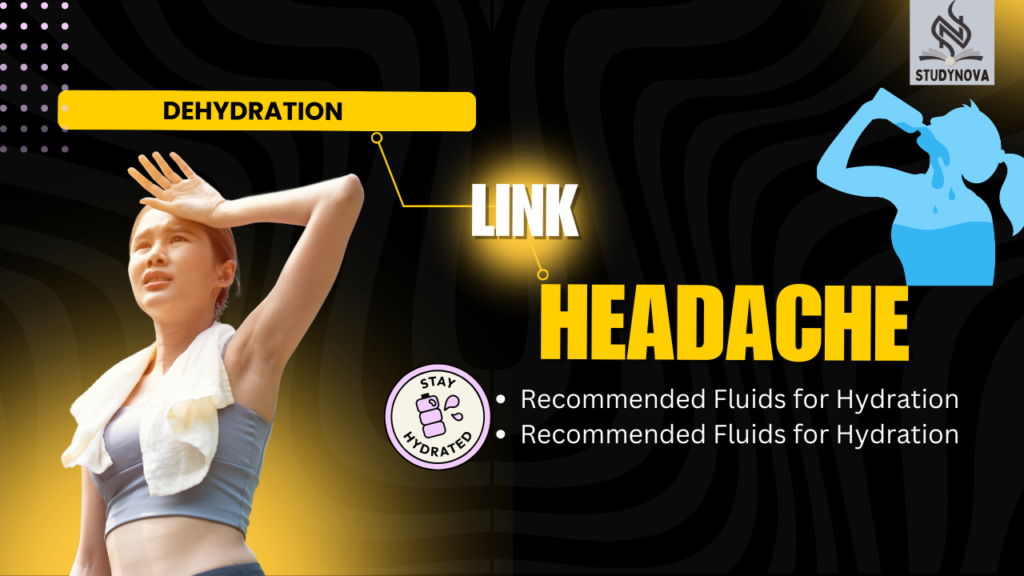Aches are a common ailment that affects nearly everyone at some point in their lives. Whether triggered by stress, fatigue, dehydration, or underlying medical conditions, headaches can disrupt daily activities and diminish quality of life. While over-the-counter medications can offer relief, many people seek natural remedies for headache relief to avoid potential side effects. This article will explore ten effective home remedies for headache relief, focusing on simple solutions within your reach. Each remedy will be accompanied by practical preparation methods, usage guidelines, and helpful tips for maximizing effectiveness.
Table of Contents
ToggleHerbal Teas: Nature’s Pain Relievers
1.1 Chamomile Tea
Chamomile tea has long been recognized for its calming effects and ability to alleviate headaches. The soothing properties help relax tense muscles and ease anxiety, both common headache triggers.
- How to prepare chamomile tea: Steep one chamomile tea bag or two tablespoons of dried chamomile flowers in hot water for about 5–10 minutes.
- Recommended dosage and timing for effectiveness: Consume one to two cups per day, ideally in the evening or during stressful moments.
1.2 Peppermint Tea
With its cooling sensation, peppermint tea is not only refreshing but also beneficial for reducing headache pain. The menthol found in peppermint helps soothe muscle tension and improve circulation.
- Preparation method and serving suggestions: Brew one teaspoon of dried peppermint leaves in hot water for 10 minutes. Adding a bit of honey enhances flavor.
- Ideal times to drink for headache prevention: Enjoying a cup in the afternoon can help prevent tension headaches.
1.3 Ginger Tea
Ginger is renowned for its anti-inflammatory properties, making it an effective remedy for various types of headaches, including migraines. Its natural compounds provide pain relief by inhibiting the release of certain inflammatory substances.
- Simple recipe for brewing ginger tea: Peel and slice a one-inch piece of fresh ginger, then steep it in boiling water for about 10 minutes.
- Dosage and frequency for optimal effects: Drink two to three cups daily, particularly during headache onset.
Hydration: The Elixir of Life

2.1 Understanding the Link Between Dehydration and Headaches
Dehydration is a leading cause of headaches as reduced fluid levels lead to the shrinkage of brain tissue, triggering pain receptors. Recognizing signs of dehydration, such as dry mouth and fatigue, is essential for prevention.
- Importance of maintaining hydration: Staying adequately hydrated can significantly decrease headache frequency and intensity.
2.2 Recommended Fluids for Hydration
Water is crucial for maintaining proper hydration, but electrolyte drinks can also help replenish lost fluids, particularly after physical activities.
- Foods with high water content: Incorporate fruits and vegetables like watermelon, cucumbers, and oranges into your diet for additional hydration.
- Timing and quantity guidelines for proper hydration: Aim for at least eight 8-ounce glasses of water a day, adjusting for activity level and climate.
2.3 Tips for Staying Hydrated Throughout the Day
Implementing simple strategies can help ensure adequate hydration.
- Incorporating reminders for fluid intake: Set alarms or use apps to remind you to drink water regularly.
- Benefits of carrying a water bottle: Having water readily available encourages consistent sipping.
- Fun ways to enhance water with fruits and herbs: Infuse water with slices of citrus, berries, or mint for added flavor.
Essential Oils: Natural Aromatherapy

3.1 Lavender Oil for Relaxation
Lavender oil is famous for its calming properties, making it an excellent choice for alleviating headaches, particularly those caused by stress.
- Methods to use lavender oil: Diffuse lavender oil in your living space or apply diluted lavender oil to temples or wrists.
- Safety information and recommendations: Always dilute essential oils with a carrier oil before topical application to avoid skin irritation.
3.2 Peppermint Oil for Tension Relief
The cooling sensation of peppermint oil can provide immediate relief for tension headaches.
- Ways to apply peppermint oil effectively: Dab diluted peppermint oil onto your temples and the back of your neck for quick relief.
- Best practices for dilution and sensitivity testing: Dilute with a carrier oil, starting with a 1:1 ratio, and patch test before widespread use.
3.3 Eucalyptus Oil for Sinus-Related Headaches
Eucalyptus oil can help ease headaches caused by sinus pressure and congestion.
- Benefits for relieving sinus pressure: Eucalyptus oil has anti-inflammatory properties that can reduce swelling in the nasal passages.
- Inhalation methods and topical applications: Inhalation of steam infused with eucalyptus oil can clear nasal passages; it can also be diluted for topical use.
Cold and Warm Compresses: Simple Relief Techniques

4.1 Using a Cold Compress
Applying a cold compress can help constrict blood vessels and reduce inflammation associated with headaches.
- How to create and apply a cold compress: Use ice wrapped in a cloth or a chilled gel pack, placing it on your forehead for 15–20 minutes.
- Optimal duration for effectiveness: Keep it on until the discomfort eases, allowing breaks in between applications.
4.2 The Soothing Effect of Warm Compresses
Warm compresses can relax muscle tension and improve blood flow, offering relief for tension headaches.
- Instructions for making a warm compress: Soak a cloth in warm (not hot) water, wring it out, and then apply it to your forehead or neck.
- When to prefer heat over cold: Use warmth for tension headaches or when feeling stiff, opting for a cold compress for migraines.
4.3 Combination Techniques for Maximum Benefit
Alternating between hot and cold can enhance relief for some headache types.
- Benefits of alternating heat and cold: This method can relax muscles and decrease inflammation, providing comprehensive relief.
- Personalizing the method based on headache type: Identify whether tension or sinus pressure is more likely; tailor your approach accordingly.
Lifestyle Adjustments: Long-term Headache Management
5.1 Sleep Hygiene for Headache Prevention
Adequate sleep is vital for overall health and can be a crucial factor in headache management.
- Tips for improving sleep quality: Establish a consistent bedtime routine, and create a calming sleep environment free from distractions.
- Common sleep-related headache triggers: Irregular sleep patterns or insufficient rest can lead to increased headache occurrence.
5.2 Stress Management Techniques
Managing stress effectively can significantly reduce headache triggers.
- Strategies for reducing stress: Consider practices like meditation, breathing exercises, or yoga to cultivate calmness.
- Building a personalized relaxation routine: Identify activities that maximize your relaxation, whether it’s reading, gardening, or taking walks.
5.3 Regular Exercise for Overall Well-being
Physical activity promotes physical wellness and can diminish the frequency of headaches.
- How exercise reduces headache frequency: Regular exercise boosts endorphins, reducing stress and tension levels.
- Setting realistic fitness goals: Aim for moderate activities for at least 150 minutes a week, adjusting based on personal fitness levels and preferences.
Conclusion
In conclusion, addressing headaches with these home remedies can offer natural solutions that empower individuals to manage pain effectively. By exploring herbal teas, maintaining hydration, using essential oils, and adapting lifestyle habits, readers can find relief tailored to their needs. It is always advisable to consult a healthcare professional if headaches persist or worsen.
FAQs
What types of headaches can home remedies help with?
Home remedies can be effective for tension headaches, migraines, and headaches caused by dehydration or sinus pressure.
Are home remedies safe to use alongside medication?
Generally, many home remedies can be used alongside medications; however, consult a healthcare provider to ensure compatibility.
How long should I expect it to take for home remedies to work?
The effectiveness of home remedies can vary; many can provide relief within 30 minutes to an hour, while others may take longer with continued use.
When should I seek medical attention for headaches?
Seek medical attention if headaches are severe, persistent, or accompanied by unusual symptoms like visual disturbances or sudden onset.
Can lifestyle changes really make a difference in headache frequency?
Yes, adopting healthier lifestyle habits can significantly reduce headache frequency and severity over time.
HOME / MORE BLOGS / ABOUT US / DISCLAIMER



